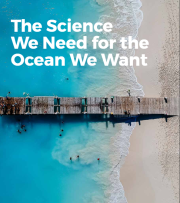The UNESCO/IOC Sub-Commission for the Western Pacific (WESTPAC) developed and has been strengthening a sustained interdisciplinary research and monitoring network for ocean acidification in the Western Pacific and its adjacent waters. The network forms the WESTPAC regional hub of the Global Ocean Acidification Observing Network (GOA-ON). Core activities include, but not limited to, regular regional/national science workshops, the development of Standard Operating/Monitoring Procedures (SOPs) and their demonstrations at pilot sites, Capacity development and the transfer of knowledge and technology among experts, institutions and countries.
As a part of this effort, WESTPAC held an Ocean Acidification Symposium, 5 November 2018, followed by the 5th WESTPAC Workshop on Research and Monitoring of the Ecological Impacts of Ocean Acidification on Coral Reef Ecosystems, 6-7 November 2018, in Xiamen, China. Both meetings were hosted and generously supported by the Third Institute of Oceanography, State Oceanic Administration of China. Seventy-six researchers from Australia, Bangladesh, China, India, Indonesia, Japan, Malaysia, Myanmar, Philippines, Singapore, Thailand, USA, and Vietnam participated in the meetings, including several members of the GOA-ON Executive Committee.
The one-day symposium featured thirteen invited science talks on current ocean acidification research, impacts, and techniques that are used from local, regional to global scales to measure ocean acidification and ecosystem response (for the symposium program, please refer to http://file.iocwestpac.org/OA/OA%205-7%20Nov%2018/5th%20OA-program%20book.pdf).The 5th workshop on the following two days was a continuation of the previous four workshops in Phuket, Thailand (19-21 January 2015, 26-28 August 2015, 29–31 August 2016, and 14-15 December 2017).
The 5th workshop covered a series of talks and discussion on the progress made at pilot monitoring sites including the strengths, challenges and lessons learned from the programme implementation, and consideration of partnership building opportunities and best practice procedures. It was evident that steady progress has been going on in the most of countries participating in the WESTPAC ocean acidification monitoring programme. Notably, countries’ research and monitoring capacity for ocean acidification was greatly enhanced, as opposed to their capacities when the programme was initiated in early 2015. With the knowledge transferred via the WESTPAC OA programme, some countries have already established their monitoring programmes and been conducting sustained observations, and others have been sparing no efforts in improving their research infrastructure and deploying relevant monitoring equipment in the pilot sites.
The workshop participants concluded that, in addition to furthering respective workplans in the pilot sites, the available Standard Operating Procedures (SOPs) shall be finalized soonest on monitoring the OA ecological impacts on coral reef ecosystems, an inter-lab calibration shall be conducted among several laboratories in the region in the next intersessional period. It was also suggested that national OA reports, if available, shall be collected and shared with other interested countries, and the conduct of a training on photomosaic technology could be considered in due course.
For the information on all previous WESTPAC OA activities, please visit http://iocwestpac.org/oa/870.html




